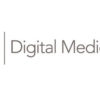Evan D. Muse et al. –
“Alexa, what’s my genetic risk for heart disease and should I be taking a statin?” Virtual assistants can guide us through CPR during emergencies and help manage diabetes, so a query into our personal genome is not far off. Genetic profiling is growing with projections that more than a billion people will have their genomes sequenced by 2025. But outside of prenatal and hereditary cancer screening, cancer treatment, and rare disease diagnosis, genetic data are infrequently used for routine preventive or therapeutic medical plans. Consumers typically connect with personal genomic data in isolation and there is poor or absent interoperability between our electronic health records and our genomics. Reviewing a patient’s physiological and medical data in electronic and paper records with limited face-to-face time at each clinic visit can be daunting. The integration of genomic data adds a new level of complexity. To overcome these barriers and bring genomic insights into the process of shared decision making with physicians, new digital tools will take centre stage.
Read the full article in The Lancet.




